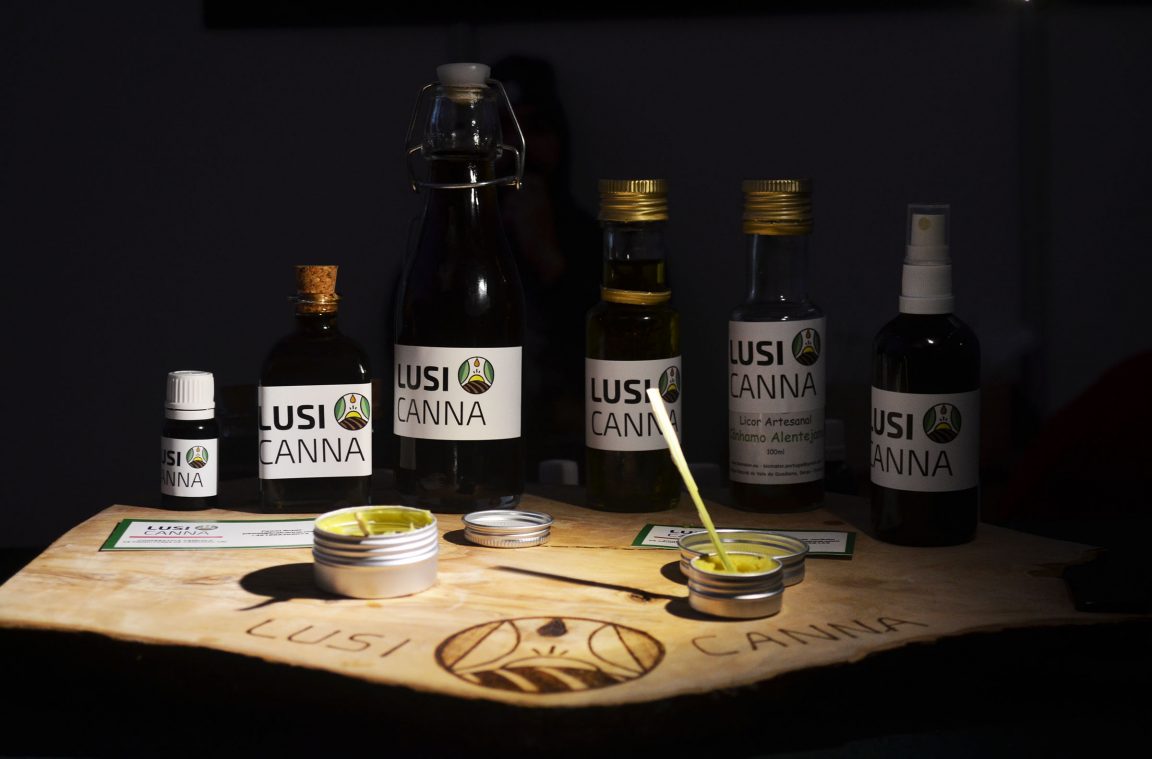The unraveling of disorder
In 2018 our cooperative and several other farmers grew hemp in Portugal without any problems, by obtaining a simple authorization from the DGAV, indicating the location of the plot, seed variety and date when planting began. DGAV approved the various requests after inspections of the seed bags.
On January 15, 2019, a new law was published (Decree Law 8/2019) which mainly aimed to regulate the Medical Cannabis industry in Portugal. In the last paragraph, the law also mentions industrial uses of the plant Cannabis sativa L. (which includes approved hemp varieties listed in the EU variety catalogue).
The law also mentions an extraordinary Ordinance that will regulate industrial uses. While the legislation is not published, in the interpretation of the legislation, INFARMED is responsible for the industrial hemp authorizations.
We were ignored by DGAV and INFARMED when we approached them via email during the month of February and when we finally wrote a public letter to the government, which was published on March 7th.
After the letter, we finally got a meeting with INFARMED, in Lisbon, on the 4th of April, and we were told that they refused to take responsibility. The industrial hemp in their eyes was the work of the DGAV. On the same day, we addressed the DGAV, which in turn blocked any authorizations for hemp cultivation in Portugal in 2019, citing the missing legislation as the reason and delegated responsibility to INFARMED.
We have launched several official complaints against DGAV. Through our contacts at EIHA (European Industrial Hemp Association), we have also sent letters to some of the Portuguese deputies in Brussels, who have been informed that the state of affairs violates agreements between Portugal and the EU.
EU laws clearly stipulate free access to hemp markets and even the establishment of a community subsidy scheme for hemp fiber. The information was also sent to the Secretary of State for Agriculture in writing as well as through a phone call made directly to the office. They acknowledged and acknowledged receiving the messages and ignored the hemp farmers' problems in a very condescending manner.
After that, regular contacts with the DGAV always ended up with the same answer: they were waiting for the Ordinance and were not willing to deal with authorizations. We tried to stipulate a voluntary way that would allow us to grow under EU regulations with the support of seed inspections. We contacted a qualified technician in Figueira da Foz who was initially willing to confirm only the status of the seed bags (in terms of compliance) without issuing any form of authorization. We have included a sentence on the form that would expressly release the seed inspector from any liability. The inspector was initially willing to work with us, but on a subsequent call he backed off after receiving a call from DGAV in Lisbon, threatening him with consequences if he worked with us.
Results of a survey for the hemp farming community
In early June, Lusicanna took a census to assess the situation. The census had questions about the projected purpose of hemp cultivation, acreage and assessment of the conduct and action of the government and respective agencies. The average growing area was 2 hectares per farmer. The census also shows that, among the hemp community, there is some confusion around the limits of the distinction between medical cannabis and hemp, a situation with very limited expression.
Below are the results:






What is the damage caused by the impediment?
So far, the following problems that result as a consequence of the impediment regarding hemp authorizations for those interested in growing hemp in 2019:
- Lack of harvest, constituting an average loss of 30.000 Euros per hectare;
- Lack of business development for each farmer, which is difficult to quantify but likely in the range of 100.000 – 200.000 Euros;
- Delay of research protocols on industrial hemp as part of an IPCB cooperation agreement with the Lusicanna cooperative beyond the point at which the institute was able to implement test crops;
- Damage to Portugal's reputation in the international industrial hemp community;
If the hemp farmers decide to press the case in Brussels, Portugal could face millions of euros in damages due to lack of sales and loss of business and development opportunities. farmers have an excellent opportunity to win this case.
Doubts about whether Portuguese hemp producers will be able to keep up with the rapid evolution of the market, even with the issuance of authorizations for 2020, continue to exist, as the climate of insecurity for investors increases for obvious reasons.
It is clear that the main harmed by this absurdity is the Portuguese people. The idea of reintroducing hemp as a widespread crop is envisioned to help the country on several levels:
- Bring a new cash crop to struggling Portuguese farmers;
- Give young people a compelling reason to stay or return to rural areas and thus help to combat excessive aging and depletion of the countryside;
- Create a new hemp processing industry with many thousands of jobs;
- Lower the country's CO2 footprint by using hemp for paper and building materials;
- Replace some of the eucalyptus plantations with hemp, which use less water and produce five times more cellulose, considerably reducing the risk of fire;
What are the reasons for this hemp impediment in Portugal?
At this point, the situation is open to interpretation. A benign view of events would be that the Secretary of State for Agriculture, Luís Medeiros Vieira, was ill for two months during the spring, but appears to be in good health. Another factor that may contribute to the issue may be the simple incompetence on the part of Organs regulatory bodies involved (DGAV, INFARMED and Ministry of Agriculture).
None of these reasons will excuse condescending behavior towards hemp farmers and their situation, but they make the situation at least understandable. However, when dealing with agencies, we feel a certain discomfort and even fear on their part.
This suggests another theory. Since medical cannabis companies were heavily favored by the Portuguese government, it is possible that they were able to influence the bureaucracy to block hemp. This is not an unreasonable assumption when we consider that Ângelo Correia, co-founder of the PSD and former Minister of Internal Affairs, owns 40% of the shares of TerraVerde (an Israeli medical cannabis company) (Source dn.pt) or Jaime Gama, The former President of the Assembly of the Republic is a consultant for Tilray Portugal, a subsidiary of a Canadian medical cannabis company (source: publico.pt).
What are the reasons for these companies to link up with personalities with political connections, if not for these reasons? And given Portugal's current state when it comes to corruption, the idea might not be too far-fetched. The Portugal Corruption Report by GAN (an anti-corruption organization) states:
“While the country has made significant progress over the past decade, recurring corruption scandals involving high-profile politicians, local administrators and companies abusing public funds have revealed that fighting corruption and abuses of power have been somewhat ineffective in Portugal. "(Source ganintegrity.com)
But why is the medical cannabis industry interested in blocking industrial hemp? The explanation is simple. The conditions for the plant are good in Portugal, not to say excellent. Medical cannabis companies want to make as much money as possible by saving operating costs. The cheapest way to grow is in fields, outdoors.
Why is this an issue with industrial hemp? Because industrial hemp could pollinate crops for medicinal purposes, which would result in seeds appearing in your feminized cannabis plants, which will cost you money. Of course, the problem could be solved by growing in greenhouses with appropriate filters. In this way, hemp and medical cannabis can peacefully coexist. Obviously, it will always be cheaper to pull some strings backstage.
We leave the final conclusion to the esteemed reader.





































I could see that someone influential was blocking it, in the end, all this is sad, I wish everything to be resolved quickly for the good of the farmers and the name of Portugal that is dem dirty.